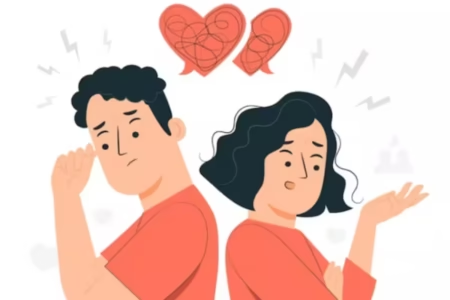Love has always been complicated, but for Gen Z, it seems more complicated than ever. Rather than traditional dating or serious relationships, many young people are not interested in those anymore. They have a new sort of romantic connection that is emerging that has been labeled a situationship. So, what is a situationship? And why is it growing in popularity? Let’s take a closer look. A situationship is not quite a friendship and not quite a committed relationship. Two people could talk every single day, go out together, even be physical, but they have not given their relationship a clear label. They may say, “We’re just seeing where it goes” or “We don’t want to put a name on it.” In short, it is not officially committed, but by no means is it just casual. Being in a “situationship” is prominent in Gen Z culture today. Many young people often voice that they do not want the pressure of a serious relationship. They feel a real connection with the other person, yet they want to have the freedom. There are various root causes of the emergence and prevalence of situationships in Gen Z culture. Social media is a huge part of this trend as well. Young people see “perfect” relationships online with gifts, trips, love letters, etc. They often disregard what love really is, because in real life, love is much messier than it is online. Instead of meeting these expectations, some decide to not define their relationship at all. On TikTok, YouTube, and Instagram, creators all over are discussing their situationships. Some make light of it. Some talk deeply about the pain that is associated along with the confusion. Regardless, it is clearly a prevalent conversation within GenZ, making it a normative aspect of their culture. Situationships have both good and bad things. The good: The bad: Some people enjoy situationships. Others become hurt or disappointed because they believe they are in a relationship, and the other person does not feel the same way. Relationship experts and psychologists emphasize that communication is the best ingredient for a successful situation. If both people know what they want, it can work. But when one person starts to expect more, like exclusivity or emotional support, it can be uncomfortable.Experts remind us that Gen Z is not “cold” or “unromantic.” They are just trying to protect themselves. They have an appreciation for mental health, personal boundaries, and emotional honesty. This isn’t to say romance is disappearing. However, romance is changing. Now more than ever, Gen Z is challenging traditional norms of dating, marriage, and labels. Some are trying out open relationships, others are exploring gender-fluid roles in their partnerships, or long-distance love online. The idea of love is becoming versatile. Situationships don’t necessarily have to indicate an end in romance. For some individuals, situationships are a short-term step before they move on to the next serious relationship. For others, situationships are a comfortable place for those who don’t want any labels attached to their relationships. Every generation has its way of loving. For Gen Z, love doesn’t always come with a label or a status update. It’s more private, more flexible, and sometimes more confusing. But in the end, the search is the same: people still want to feel seen, understood, and cared for. Whether in a situationship or a serious relationship, the most important thing remains the same: honest communication and mutual respect. Keep reading foramz
As the labels blend and blur, Gen Z is reshaping intimacy — and that evolution is situationships, the ideal middle-ground between casual hook-up and serious relationship. Situationships, happen out of a perfect storm of emotional caution and hyper-digitized abundance, are the embodiment of freedom, flexibility and a fierce commitment to personal growth. When the culture is swiping, it makes for endless possibilities. Age-negative dating apps like Tinder and Bumble are creating a “paradox of choice,” to make dating deeply committed feel, uh, a bit… premature. When you combine pandemic-related anxiety (with 47% of Gen Z admitting to increased social anxiety and hesitation) or financial instability (thanks inflation!) or still-delayed major life events (such as moving out, graduation, job hunting, buying a car) into the modern dating mix, you have perfection—the default mode for dating becomes prolonged romantic ties with no defined end point, and no final outcomes. In this middle-ground romance, intimacy grows without the treadmill of payors-chasing-us. It is about emotional closeness, private texts, midnight confessions—and zero-pre-wedding-daydreaming. A 2022 Tinder study showed that 49% of dating app users ages 18 to 25 are sporting situationship status as their pride in relationship status. Sane smirks: “So, what happened to Hollywood-style romance?” This is the twist: Gen Z wants love… just on their own terms. They have made it clear that aren’t for “the sake of commitment,” but that they want the freedom to agency, authenticity, which flies in the face of social pressure to conform. “These gray area relationships are still laden with emotional baggage. Uncertainty, unequal levels of jealousy, and mismatched expectations drove 75% of Gen Z to experience emotional pain as cut through as traditional relationships. However, for those who value independence versus entanglement, the emotional gain can render the emotional risk worthwhile. Keep an eye out for Part II to dive deeper into the values, fears and digital drivers influencing the shift.” for more social issues keep reading foramz.com


